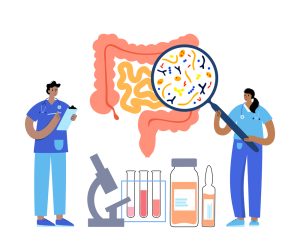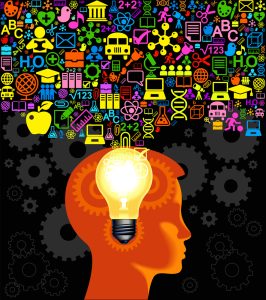 For those interested, papers are available online that report the results of studies related to the key health areas where Teknon has the potential to positively impact special needs children.
For those interested, papers are available online that report the results of studies related to the key health areas where Teknon has the potential to positively impact special needs children.
Nourishing Your Special Needs Child’s Metabolic Health
 Research shows that metabolic dysfunction and imbalances in the gut microbiome are frequent concerns for Special Needs Children.
Research shows that metabolic dysfunction and imbalances in the gut microbiome are frequent concerns for Special Needs Children.
These symptoms often fall under the umbrella of Metabolic Syndrome—a cluster of conditions that signal deeper metabolic issues. This includes high blood pressure, elevated blood sugar, abnormal cholesterol levels, and central obesity. But the impact goes beyond physical health: a sluggish metabolism can impair focus, memory, attention, and overall cognitive performance.
Read about the
Diet for the Metabolic Health of a Special Needs Child
The Human Gut Microbiome: A Potential Contributor to Special Needs Children’s Condition
 Studies have found that when the gut’s balance of bacteria is “off,” it may also affect the brain, emotions, and social behaviors.
Studies have found that when the gut’s balance of bacteria is “off,” it may also affect the brain, emotions, and social behaviors.
While scientists don’t yet fully understand the exact link, they believe the gut and brain are closely connected through what’s called the microbiota-gut-brain axis.
Read: The Gut-Brain Connection in Children with Special Needs
Cognitive Health for Your Child
 A Nutritional Approach to Cognitive Health
A Nutritional Approach to Cognitive Health
Understanding the relationship between nutrition and a child’s cognitive function is crucial. There are fundamental connections between dietary choices and brain health.
Understanding the Gut-Brain Axis
The back and forth communication between the gastrointestinal tract and the central nervous system travels mostly through the vagus nerve. The vagus nerve extends from the brain to various organs including the heart, lungs and digestive tract. It carries signals between your brain, heart and digestive system. It plays a vital role in cognitive function.
The enteric nervous system (ENS) often called the “second brain” is in the gut and helps manage digestion.
This system is made up of a network of nerves in your child’s digestive tract including the stomach and intestines. It controls things like muscle movements in the intestines, the release of digestive enzymes, and the absorption of nutrients. It also communicates with the central nervous system to regulate digestion. It coordinates the movements and processes that break down food and keep your gut working smoothly.
It significantly influences neurological function through beneficial bacteria that contribute to the production of essential neurotransmitter and neuromodulators. production and immune system regulation.
Recent clinical papers suggest that metabolic issues can cause deficits in sociability and communication and increased repetitive and/or restrictive behaviors in children
Focus – A slow metabolism can affect a person’s focus. When the brain’s energy production and utilization fall below normal levels, it can lead to energy dips, increased cravings, and a slow metabolism. This disruption in brain metabolism can impact memory formation, emotional regulation, and overall energy levels.
Attention – A slow metabolism can affect a person’s attention and overall health. Factors such as poor diet, inactivity, and metabolic syndrome can contribute to cognitive dysfunction and brain abnormalities
Speech and language delays – A bad metabolism does not directly affect a person’s speech.. However, poor metabolic health may be associated with memory and thinking problems, which could indirectly impact cognitive processes related to speech production.
Optimizing gut health as an approach to improving your child’s cognitive function.
It is understood that a special needs child has food dislikes and texture issues, but it is important to get creative in balancing those needs with a diet that builds cognitive health.
Diet Principles
Creating a diet for your child that emphasizes minimally processed, plant-based foods. It includes:
- Fruits and vegetables
- Whole grains
- Legumes
- Nuts
- Olive oil Small amounts of fish, eggs, dairy, and meats
Research consistently demonstrates the neuroprotective benefits of this dietary practice. You should consider incorporating these key components:
- Omega-3 rich fish sources for neural membrane integrity
- Polyphenol-rich fruits and vegetables for antioxidant protection
- Extra virgin olive oil for its anti-inflammatory properties
- Complex carbohydrates from whole grains for sustained glucose regulation
- Nuts and seeds for essential minerals and healthy fats
Addressing the Sugar Impact
Glucose can significantly impact cognitive function and neurological health. Your child’s diet should:
- Minimize blood sugar ups and downs
- Reduce inflammatory responses from excessive sugar intake
- Support proper glucose utilization in brain tissue
- Implement appropriate sugar alternatives when necessary
Significance of Processed Food Reduction
When developing your child’s diet, address the negative impact of processed foods on neurological function. Processed foods often:
- Promote systemic inflammation
- Disrupt the gut microbiome
- Contain neurotoxic compounds
- Lack essential micronutrients necessary for optimal brain function
Implementing Nutrition for Cognitive Enhancement
Have your child eat protein-rich breakfasts combined with complex carbohydrates to support sustained cognitive function throughout the day. Include:
- High-quality protein sources
- Complex carbohydrates with low glycemic impact
- Antioxidant-rich berries
- Omega-3 supplementation when indicated
The diet should also include:
- Regular fatty fish consumption (2-3 times weekly)
- Diverse vegetable intake for phytonutrient support
- Adequate hydration
- Strategic snacking with emphasis on nuts and seeds
This approach to brain health through nutrition provides you with a framework for developing an effective diet. Understanding and implementing these principles can better support your child’s cognitive health and overall well-being.
When improving your child’s diet, you should gradually include the above foods so there is not too big a change.
Supporting Metabolic Health
There is a range of nutrients required to maintain metabolic health. Due to the quality of food today, many children are deficient in the vitamins and minerals needed by the body for optimum health.
Camel milk contains high proportions of anti-bacterial and anti-viral substances, antioxidants and immune system boosters. It provides a range of vitamins and minerals, including B vitamins, Vitamin C, Vitamin E, magnesium, calcium, zinc, selenium, iron, potassium and phosphorus, and can offer excellent nutrition for children.
Read more about TEKNON Protocol Can Support Metabolic Health in Children
How can a Gut and Metabolic Formula be enhanced to help Special Needs Children?
 Metabolism is about how a child’s body creates energy, fights disease, and keeps them alive and thriving. It’s the system behind the scenes that controls almost everything – energy levels, hormones, heart health, and even the brain.
Metabolism is about how a child’s body creates energy, fights disease, and keeps them alive and thriving. It’s the system behind the scenes that controls almost everything – energy levels, hormones, heart health, and even the brain.
With Special Needs children it is harder for their bodies to absorb nutrition due to a compromised gut. The gut wall is thus less permeable, and the blood-brain barrier is less permeable, and the nutrition molecules have difficulty passing through.
ERDS™ (Enhanced Rapid Delivery System) works to enhance the nutritional formulas because it improves solubility and absorption. ERDS is a special formulation of vitamins that increases the body’s ability to absorb more of the nutrition available.
ERDS is a proven to be a safe and effective method of improving this absorption and bioavailability of poorly soluble materials. The molecules of most nutrients are too large to be well absorbed by the cells.
The extract in ERDS can make the molecules in the nutritional ingredients smaller and of a shape that is more permeable and able to pass through:
•Intestinal lining
•Blood brain barrier
•Cellular lining.
This means that when ERDS is added to any source of nutrition it increases the amount of nutritional uptake (you get more of the available nutrition into your cells) and also the speed in which the nutrition is absorbed by the body is increased.
TEKNON includes ERDS™ (Enhanced Rapid Delivery System).
It will essentially increase the activity and get more of the Teknon into the gut. It will be able to permeate a variety of cell membranes including the gut, eyes, mouth and skin.
In the gut, malabsorption can also be caused by the rejection of certain compounds by the cells. Teknon enhanced by ERDS inhibit this rejection, and thus improving absorption through the gut wall.
Teknon is based on scientific studies to allow the body to have natural ingredients that have been found to support an optimum metabolism.
Teknon is a natural nutritional supplement to improve metabolism and gut health. ERDS is made up of special extracts of Vitamin E, Vitamin C, Vitamin A and Vitamin D3. Teknon also includes B1, B2, B6, calcium, iron, magnesium and potassium
ERDS is part of the Teknon formula and so it increases the nutrition available from the ingredients in the Teknon formula.
Read more about Teknon Protocol
Improve the Quality of Life for Special Needs Child by Restoring their Metabolic Health
 Many studies have shown that a large percent of special needs children has a problem with their gut and their metabolism.
Many studies have shown that a large percent of special needs children has a problem with their gut and their metabolism.
One thing you can do to improve the quality of life for that child, is address his gut and metabolism. If metabolism isn’t functioning in the optimum way a person can experience a range of health issues, including:
- Gut problems
- Sleep problems
- Inflammation
- Getting sick easily due to a weakened immune system
What is Metabolism?
Metabolism is the process of all cells of the body creating energy from food.
What powers that metabolism? The tiny energy engines called the mitochondria that are in every cell of the body. The body cannot run without energy and the mitochondria provide that.
When the body’s metabolism is disrupted, there is less cellular energy produced by the mitochondria and organ dysfunction results. Just like a car can’t run without gas, the body can’t function without cellular energy.
Underlying Metabolism is the Mitochondria
Mitochondria are the energy powerhouses in every cell. Mitochondrial damage disrupts normal metabolism.
What Happens when Mitochondria Lose Function?
Low mitochondrial energy production affects cellular function in ways that can ripple throughout the entire body. This low energy production or dysfunction is like a car running on fumes. A car can sputter along for a while but will eventually stop working all together.
The relationship between mitochondrial dysfunction and physical problems becomes apparent when examining different conditions.
As an example: Mitochondrial dysfunction drives autoimmune conditions. Immune cells require substantial energy for activation and rapid reproduction, and mitochondrial dysfunction compromises their ability to function effectively. This can lead to an overactive immune response, where immune cells attack the body’s own tissues, or to insufficient responses that fail to clear pathogens or debris.
Because so many organs and processes of the body are dependent on this energy and the mitochondria that makes it, symptoms can impact many organ systems depending on which organ in the body is affected.
Good Health Depends on Optimum Mitochondrial Function
B1 and magnesium are important nutrients in energy production. Think of the mitochondria as the engine of your car, and B1 and magnesium as the spark plugs that ignite the fuel. Without these vital components, the engine simply won’t run efficiently leaving someone feeling drained and sluggish. In fact, without adequate levels of these nutrients, the entire energy production process can grind to a halt.
Camel Milk Can Support Mitochondrial Health
Due to the quality of food today, most people are deficient in the vitamins and minerals needed by the body for optimum mitochondrial and metabolic health.
Camel milk contains high proportions of anti-bacterial and anti-viral substances, antioxidants and immune system boosters. It provides a range of vitamins and minerals, including B vitamins, Vitamin C, magnesium and zinc.
Purelife Care+ Camelicious whole camel milk powder offers all the benefits of camel milk as well as the added benefit of natural ERDS™ (Enhanced Rapid Delivery System). ERDS is a powerful extract of Vitamin E, and Vitamin C and Vitamin D3 to enhance the bioavailability of the nutrients of the camel milk.
PureLife Care+ Camel Milk is a natural supplement that works at the cellular level to support the gut, the mitochondria and a well-functioning metabolism.
More at Gut and Metabolism Support for Special Needs Children
